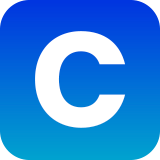The recent Coronavirus outbreak has many companies opting to work from home. It is a necessity during the current pandemic, but it is also a way to attract young talent.
Remote working is a rising trend, especially among the millennials who seek the leisure of a flexible schedule when looking for job opportunities. Many businesses are thus revising their policies and offering remote work options to attract diverse talent.
Furthermore, emerging technologies and innovative software make work from home feel no different than the office. These tools make it convenient to maintain communication, manage assigned tasks, and track employee performance.
So, if you’re thinking of embracing the work-from-home trend, here are some work from home productivity tools that will make the switch a breeze:
Communication
Constant communication is vital when working from home to maintain the efficiency of operations. Here are some of the best work from tools that can bridge the communication gap:
Slack
Slack is a versatile communication management app ideal for work from home operations. The platform allows you to create private channels for each department or exchange direct messages with individual team leads.
You can share files and images, pin documents for references, bookmark messages, and more. Additionally, the app supports video and voice calls so that you can hold team meetings or conferences with clients conveniently.
It functions on the web, or you can download the desktop and mobile app to cut internal emails for more efficient and swift communication.
Skype or Skype for Business
Skype is one of the oldest platforms for communication. Its simplicity and ease of use make it one of the best options for a remote team. Team members can collaborate through messages, voice, and video calls. You can create groups to hold conference calls with your team or clients, share files, images, and more.
Contrarily, Skype for Business is a relatively new extension to Skype. With real-time input, businesses can conduct video conference calls, record meetings, annotate PowerPoint presentations, and share screens. It can allow up to 250 people per conference, plus you can mute one or all participants and transfer presenter control. Furthermore, it also supports automatic cropping and head tracking.
Zoom
Zoom is another video conferencing platform used by many companies to hold meetings with remote teams. It is one of the best alternatives for face-to-face interactions.
It has multiple features that make communication a breeze over long-distances, including recording and storing conference calls. The platform offers HD video calls, screen sharing, in-conference chat, content sharing, and much more.
One unique feature of Zoom is that only one person needs to download it, and the rest can join the conference via the link from their phone, tablet, or desktop. It makes meetings more accessible for everyone in the team.
Additionally, Zoom allows collaboration by toggling between members to share screens, hosting webinars, and using shared touch screens with whiteboarding. It is an ideal way to exchange ideas and collaborate on team projects when working from home.
Sharing Files, Documents, and Images
For a seamless workflow and unity between teams, you need to ensure your employees are on the same page when working on a single project. These tools will help in file sharing with all members of the team working from home:
Front
Front helps escape long-winded email threads. It is a centralized communication hub that combines help desk tickets with internal messages, emails, and apps. Furthermore, with Front and Aircall integration, teams can communicate via voice call and access contextual information about clients from one platform.
It is ideal for the sales team and customer service representatives. With all client details in one place, they can increase work efficiency and productivity.
Zapier
If you don’t want to use multiple tools for various purposes, Zapier is the solution you need. For remote teams or those working from home, it syncs information across all platforms, making Zapier all you need for a seamless workflow. You can integrate other tools with it and keep your team in the loop without wasting time switching between apps.
Task Management
Coordinating tasks between departments and within the team is a challenge when working from home. These tools will help you manage and assign tasks, as well as follow up on deadlines:
Basecamp3
Basecamp3 is a primary choice for managers, teams, freelancers, and companies to assign tasks, curate to-do lists, and keep track of pending or completed assignments. It offers multiple features, simple functionality with a clean and elegant design that makes it a preferred option.
The platform allows managers and team members to collaborate on ongoing projects and ensure they are all on the same page. Besides task management, it also offers file sharing, chats and messaging, milestone tracking, and more. It is an ideal way to organize your to-do lists and keep track of your team’s progress.
Jira
Jira is an alternative for Basecamp that counters the limitations of the latter. It offers straightforward usability and functionality for agile task management. It centralizes all tasks assigned to the team, including completed or pending work.
Additionally, the platform provides complete transparency to discuss and prioritize work, create workflows or use a template, and collaborate in real-time. It is a cloud-based software that features scrum boards, Kankan boards, developer tool integrations, prompt reporting, rich APIs, mobile apps, and more.
Trello
Trello is another work from home tool to help with task management. It is a visual planning and collaboration platform that meets the project planning needs of all types of teams.
Using a Kanban-style of management, your whole team can organize boards for projects, tasks, or schedule deadlines. You can create workflows, assign tasks, add checklists, and track the progress of each department or individual. You can also include a visual representation of your projects with cards and boards, write comments, and attach documents.
Productivity Tools
Boost team productivity and track their progress even when they work from home. These tools will help ensure they function like a well-oiled machine even when working remotely:
Klaus
Managers worry about team performance dropping when remotely working. But Klaus allows you to digitally audit and rate your teams’ interactions with clients across diverse channels. Furthermore, integrating with Aircall will enable you to review calls and provide constructive feedback to your customer service agents.
Avoma
Ideal for the Sales and Marketing department, Avoma allows you to transcribe and analyze client calls to take notes and actionable insights. It features transcripts, AI-summarized recording, and automatically syncs to your CRM.
Additionally, managers can make use of the conversational intelligence features to extract valuable insights, using custom keyword trends and speaker and topic identification. Integrating it with Aircall also allows you to analyze calls across teams and use the ideas to close more deals successfully.
Avoma also supports cross-functional collaboration with centralized notes, searchable recordings, plus snippet and playlist sharing. It is one platform that helps your sales representative boost their performance.
For Developers
Developers, designers, project managers, and other members of the production team find it a little more challenging to set up shop at home than other departments. But these tools can help you maintain your work ethics, meet project deadlines, and collaborate with other members with ease:
Pivotal Tracker
For your technical team, Pivotal Tracker is the tool that allows them to work seamlessly, log bug reports, feature requests, and create to-do lists on a single platform. You can set priorities, schedule tasks for every week, and track progress. It allows you to work cohesively even from home.
GitHub
GitHub is the multi-purpose platform where developers can collaborate seamlessly from home. It allows you to share code, comment on other’s code, ask for feedback, and more. Plus, it supports integration with Slack, making it convenient to review codes and pair programming.
Ready to Work from Home?
Working from home has many benefits for employees and employers. It provides more freedom and accountability for employees, while employers witness a boost in productivity. It also improves work-life balance, reduces physical fatigue, and mental stress.
But to ensure complete transparency, it’s essential to maintain communication. Use the tools above to hold team meetings, share insights and project ideas, and make sure your employees are satisfied.
Cubix, too, has switched to working remotely during COVID-19 pandemic with Slack, Skype, and Basecamp3 for communication and task management. So, make your choice and support social distancing by working from home!

